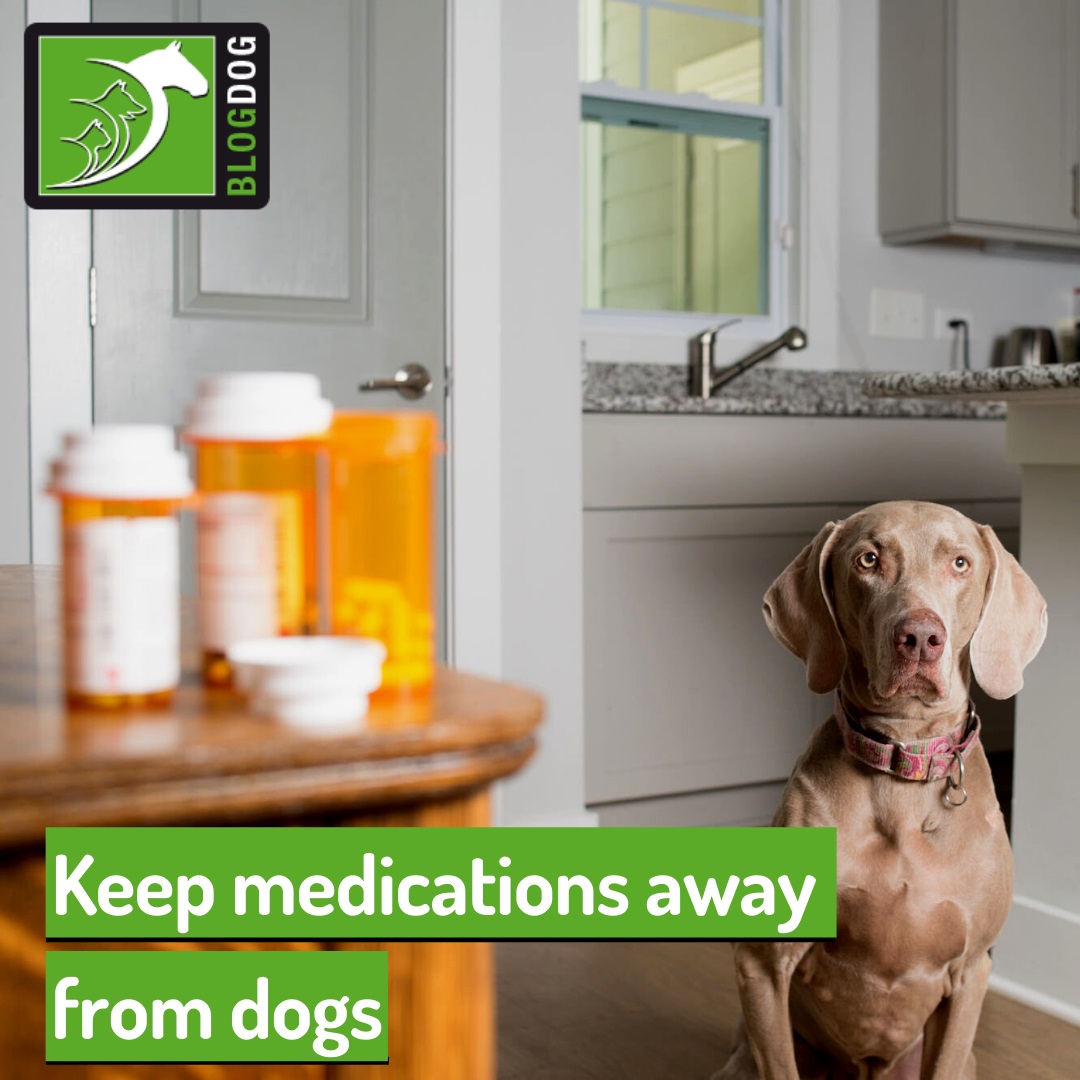
Keep medications away from dogs

Keep medications away from dogs
If your dog suddenly seems unwell, it can be tempting to give them medicine you have at home, but many of the most common medications humans use are toxic to our furry friends.
These include acetaminophen (Paracetamol), common anti-depressants and sleeping pills, among many others and they can cause gastrointestinal effects (such as vomiting and diarrhoea), neurological effects (such as seizures) or even kidney and liver failure.
This is why human medications should never be given to dogs and should always be out of reach to ensure they aren't accidentally swallowed.
How to prevent dogs from accidentally ingesting medications
Here are some tips on how to keep your dogs safe from accidentally ingesting medications:
- Always keep both human and veterinary medications in a place where your pets can't access, such as a closed cabinet or drawer. If your dog is persistent, you might need to lock that cabinet;
- If you drop a pill on the floor, immediately pick it up;
- Don't leave pills unattended on tables or nightstands;
- Keep human medications separate from pet medications to prevent them from getting mixed up;
- Always keep medications in their original box;
- Pay attention to storage instructions and expiration dates some medications might need to be stored in the fridge, for example. Don't give your dog expired medications;
- Don't let pets have contact with medication patches, such as a nicotine patch;
- Don't let pets lick skin where a topical medication has just been applied;
- Don't throw medications in the garbage, especially if you have a curious dog that has a tendency to sniff around the trash.
What to do if your dog accidentally ingests medications
If your dog ingests a medication that wasn't prescribed for them, contact your veterinarian immediately, and let them know what medications your pet has eaten and how much. You can also contact the Animal poison line (https://www.animalpoisonline.co.uk/).
If your vet isn't available for any reason, it's best to take your pet to the nearest emergency vet. Time is of the essence, and the sooner your pet is assessed, the better.
Ultimately, you should never give dogs human or veterinary medications without consulting your veterinarian. Not only are certain human medications toxic to pets, but even for the ones that are safe, administering the correct dosage is essential to prevent problems for your dog or cat.
Even medications meant for pets might only be safe for a specific species. For example, certain flea medications commonly used for dogs are highly toxic to cats. Be sure to follow your vet's instructions carefully when giving your pet any medication.
Would you like to know more about dogs? Check our Canine Courses:
Canine courses
Published: 05 Sep 2022
Read the previous article: How to increase your cat's water intake

